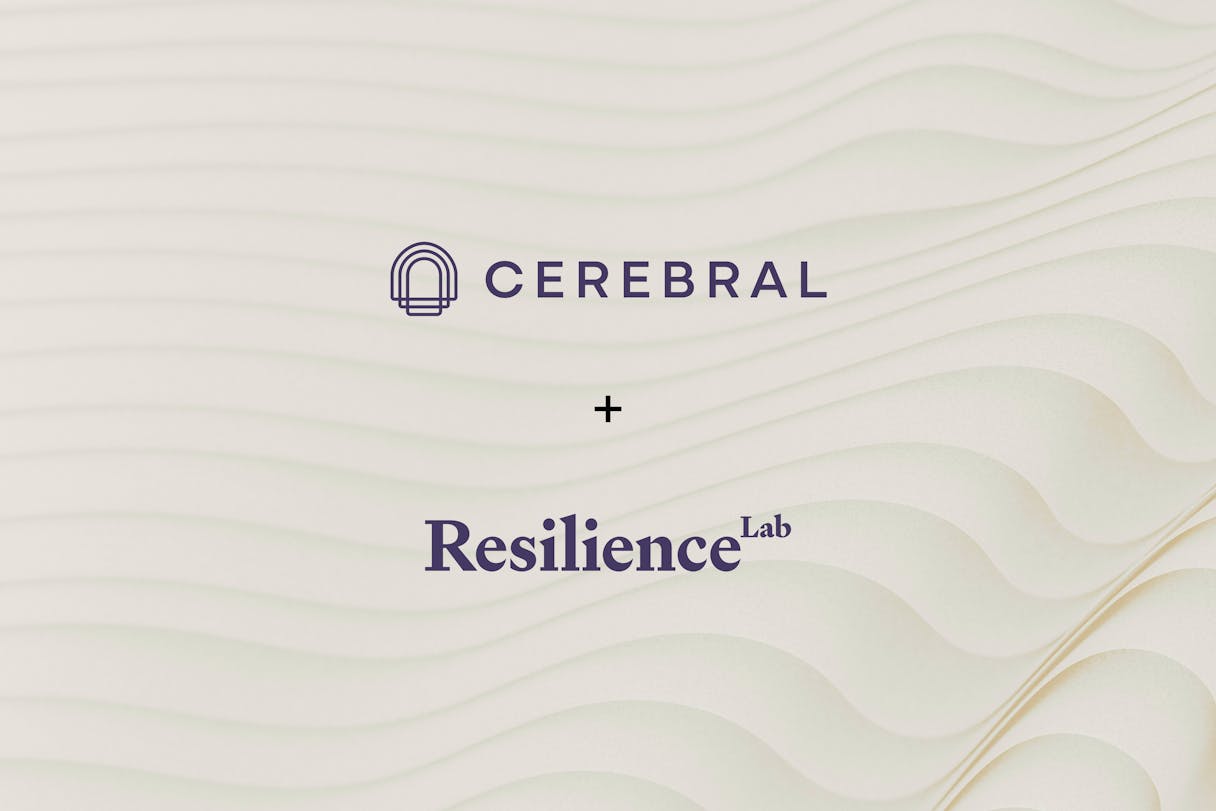Struggling with anxiety can be difficult and sometimes debilitating—seeking professional help is a step toward helping you achieve calm, balance, and peace. But a therapist isn’t a genie who can make your problems go away with a few insightful words. Like physical therapy, mental therapy requires commitment from the patient and professional advice from an expert so that together, you can make progress. With all that said, how long does it take for therapy to work for anxiety?
Unsurprisingly, there isn’t an easy answer. While it's impossible to predict exactly how long therapy will take to work for everyone, here are some general guidelines that can help you understand what to expect.
Duration of treatment
According to the American Psychological Association, therapy successfully ends when you’ve accomplished the goals mutually agreed upon between you and your therapist. You should discuss your goals and the length of treatment at the start of your journey and reassess both as time goes on.
Think about it—if you were getting physical therapy for a knee injury, your clinician might be able to give you a rough estimate of duration at the start, but will shorten or lengthen your treatment depending on your progress. You can expect the same when working with a professional therapist.
In some cases, your therapist might recommend sequential goals as your treatment progresses. This could lengthen the duration of your treatment. Research has found a positive relationship between treatment duration and clinical outcomes. In short, individuals will show significant change or recovery with increasing treatment length. So you should expect to devote a sufficient amount of time before deciding whether treatment is working or not.
On average, half of all patients will require somewhere between 15 to 20 sessions to recover from their mental health struggles as indicated by self-reported symptom measures. The duration of therapy can vary depending on the severity of your anxiety. If you have mild anxiety then 8-12 sessions may be effective as you learn coping skills and develop strategies to manage anxious thoughts and feelings. Patients with moderate anxiety may need 15 to 20 sessions to see lasting improvement.
For severe anxiety or anxiety that has persisted for a long time, long-term therapy may be necessary. Long-term therapy can last several months or even years and progress may be gradual. It's important to be patient and consistent with your treatment plan, as progress may not always be linear.
Medication and therapy
Medication and therapy can be used together to effectively treat anxiety. It's important to set realistic expectations when it comes to medication as it can take time to start working and is often not a cure-all. So if you’re seeing a therapist, continue working with them to develop long-term coping strategies. The combination of medication and therapy is often most effective in treating mental health challenges, compared to relying solely on therapy or medication alone. However, medication may not be right for everyone so talk with your mental health professional and/or doctor to discuss if medication may be a good fit for you.
Signs therapy is working
It's important to keep in mind that progress in therapy can be gradual and may not always be obvious. However, there are some signs that therapy is working in helping reduce your anxiety.
- There is a decrease in the intensity or frequency of anxious feelings: You may notice that you feel less anxious in situations that used to trigger intense feelings of stress or panic. Over time, you may find that you're able to manage your anxiety more effectively and with greater ease.
- You have more control over your thoughts: In therapy, you’ll learn techniques to identify and challenge negative thoughts. If you find that you're able to control your thoughts more effectively and reduce the impact of your anxious thoughts, then therapy is working.
- You're able to identify and manage your triggers: Your therapist will help you identify what triggers your anxiety and develop strategies to manage these catalysts.
- You feel more confident in your ability to cope: Through therapy, you may develop coping strategies and tools that help you feel more confident in your ability to manage your anxiety. If you gain control over how to handle challenging situations more effectively, then you’re making progress with therapy.
Finding the right therapist is key
Finding the right therapist can make a big difference in how long therapy takes to work. It's important to find a therapist you feel comfortable with and who has experience treating anxiety. Here’s why.
- You'll feel more comfortable opening up: Therapy involves talking about sensitive and personal issues, so it's important to have a therapist you feel comfortable opening up to. If you don’t then you may be less likely to share your thoughts and feelings, which can hinder your progress.
- You'll be more motivated to attend sessions: Therapy only works if you regularly attend your sessions. Finding a therapist you trust and feel comfortable with will motivate you to attend appointments and engage in the therapy process.
- You'll receive the right treatment approach: Different therapists will have different approaches to how they treat patients. It’s important to find a therapist experienced in treating anxiety and can provide effective tools and strategies to manage your symptoms. It is also important that the therapist’s approach works for your needs. For example, if you know that you will not use meditation, then you should not choose a therapist who relies heavily on mindfulness techniques to address anxiety.
- You'll improve your chances of success: Therapy can be a challenging and sometimes uncomfortable process, but the right therapist will increase your odds of success. A therapist who is a good fit for you can help you develop the skills and insights you need to manage your anxiety and improve your overall well-being.
Commit to your mental health with Cerebral
Cerebral provides online therapy with top-tier therapists as well as medication management with responsible, licensed prescribers. We understand that each patient’s needs are different, and so we assess your medical history and symptoms to help you choose a therapist who will give you the best chance at success in improving your mental health. Plus, it’s easy to switch therapists if you ever feel you’d like a change.
It’s probable you’ll need more than a dozen therapy sessions to start seeing improvements in your mental health. Committing to meeting consistently with an expert is key when seeking professional support in managing your anxiety. Cerebral makes it easy to make that commitment with our Strong Start packages, designed to help you achieve noticeable results.
Looking for help in improving your mental health? Start by taking a free assessment.

Our Care: The Resilience Methodology

A New Era of Mental Healthcare: How Cerebral Is Expanding High-Quality, Personalized Care

Relationship Anxiety: Understand the Signs and Ways to Cope

Call 911 if you’re having a
mental health emergency
Text Home to 741-741 if you're in emotional
distress and need immediate support
Call or text 988 Suicide &
Crisis Lifeline. Chat service
is available at 988lifeline.org.